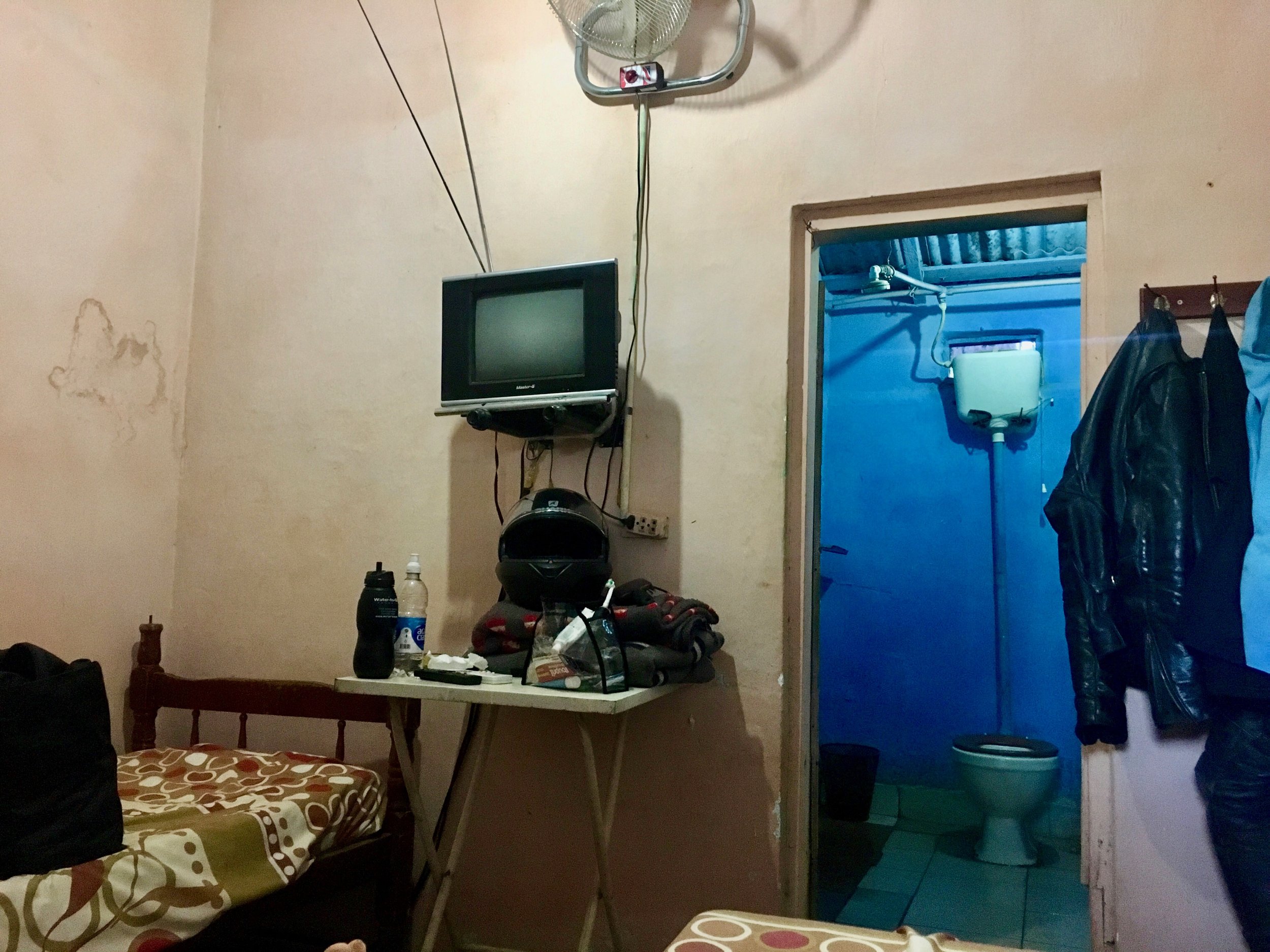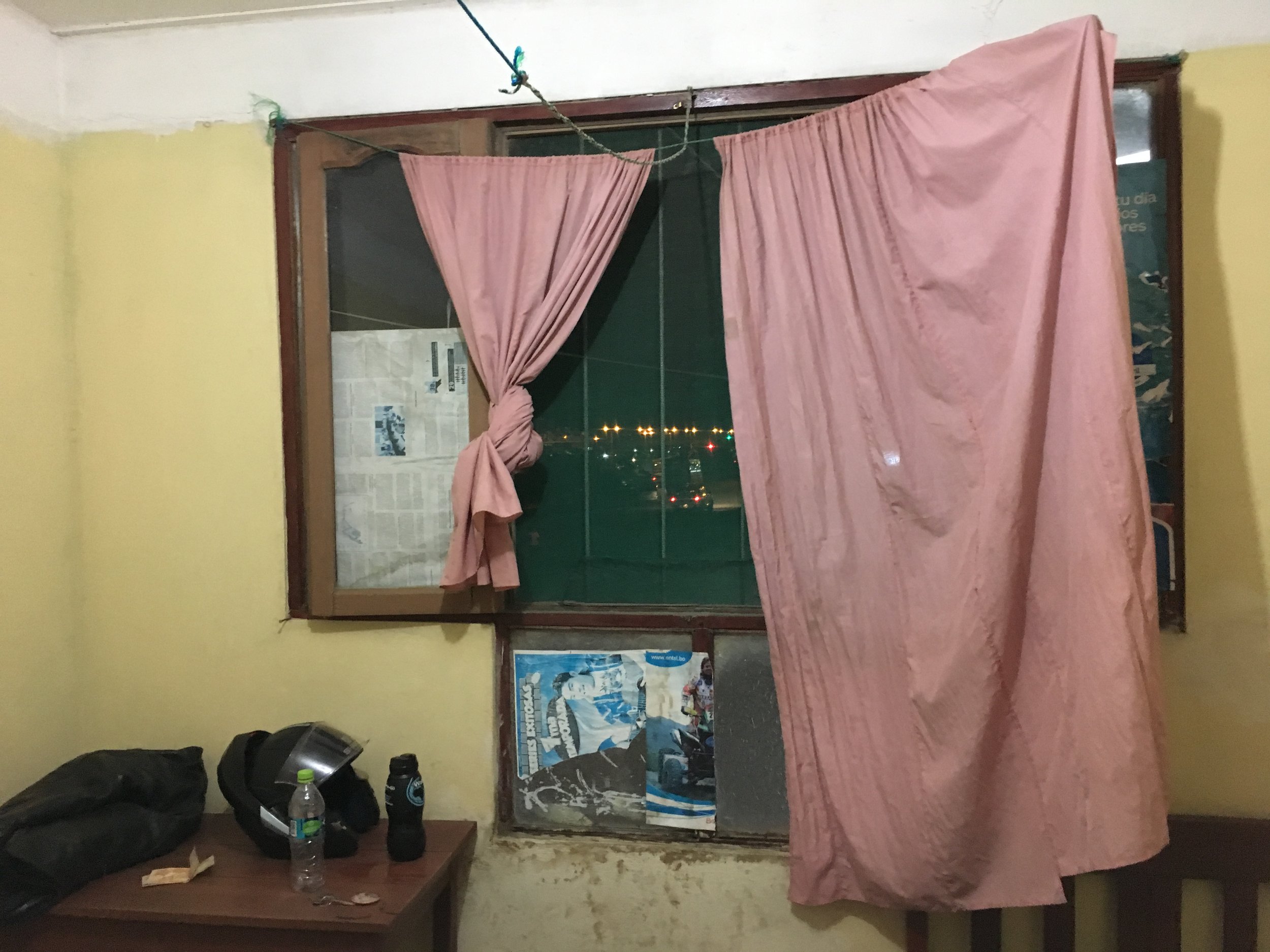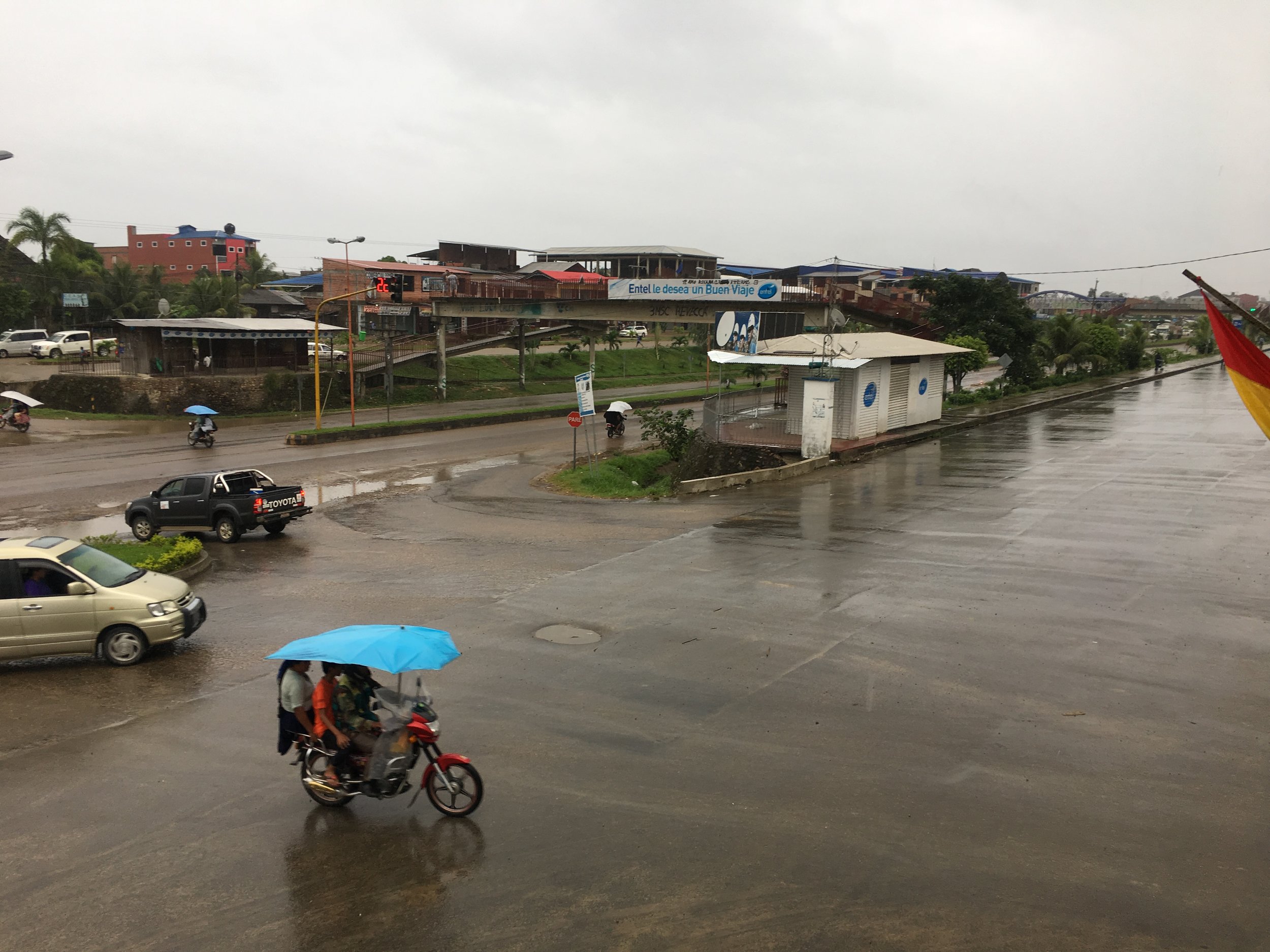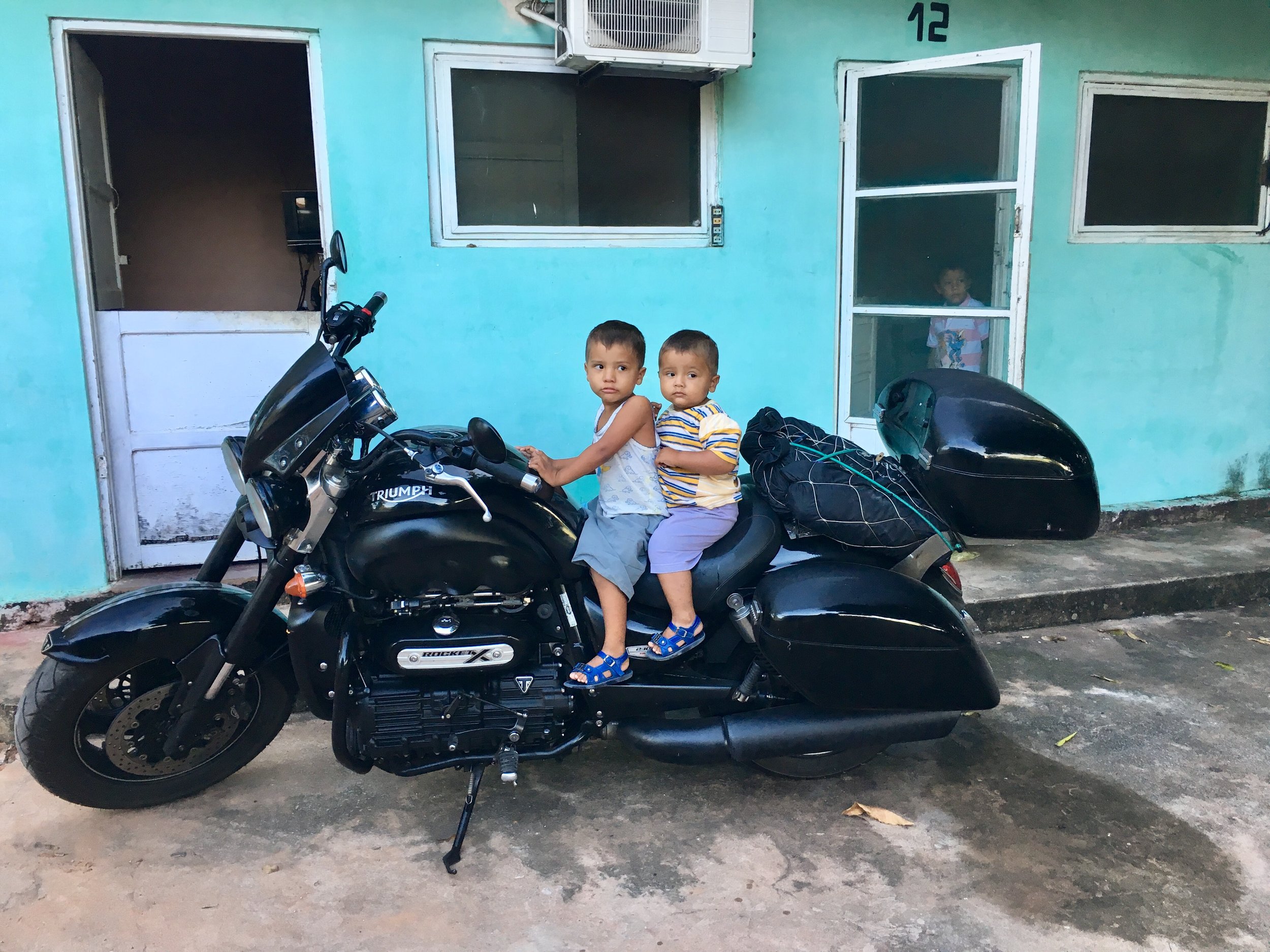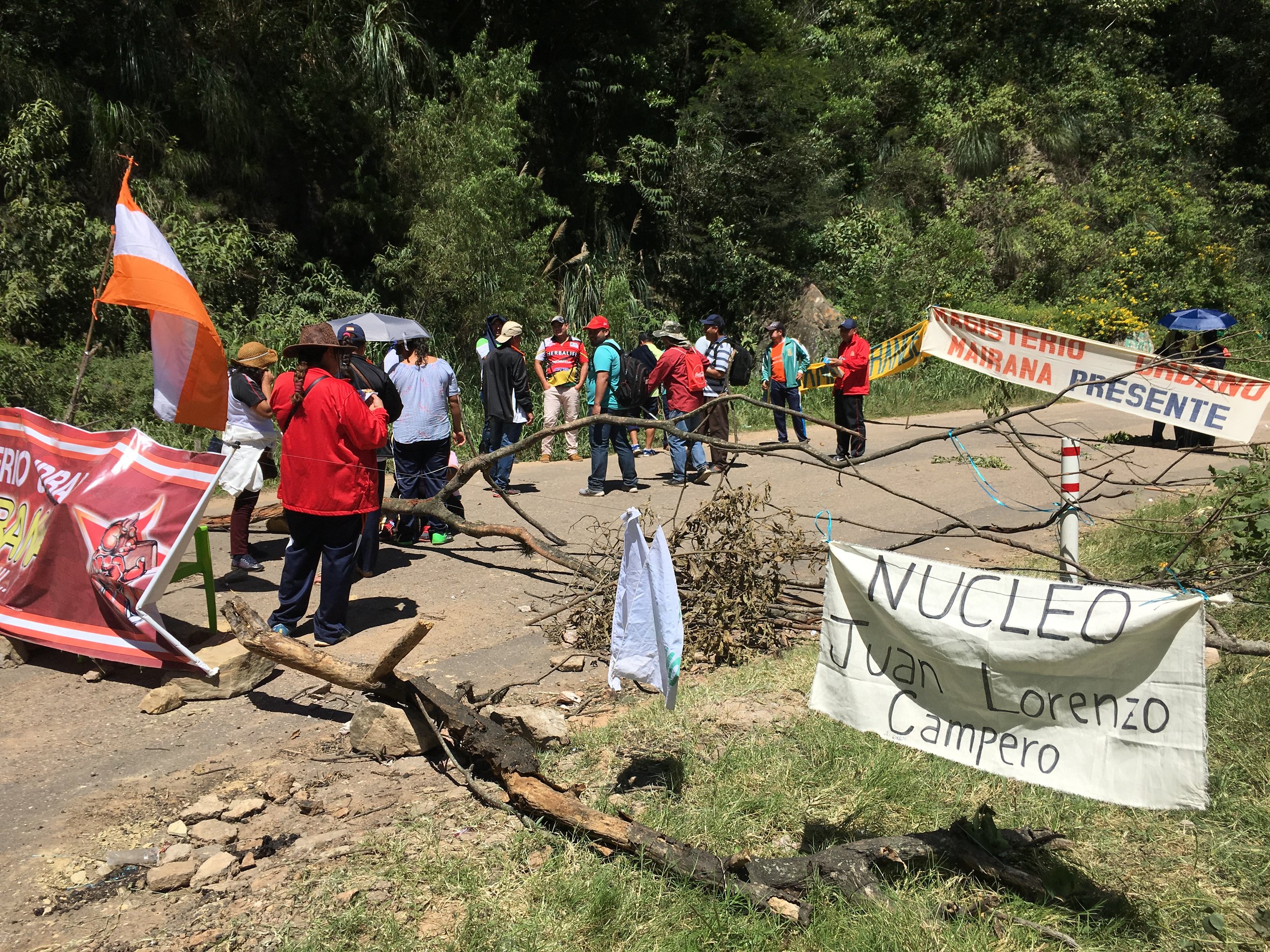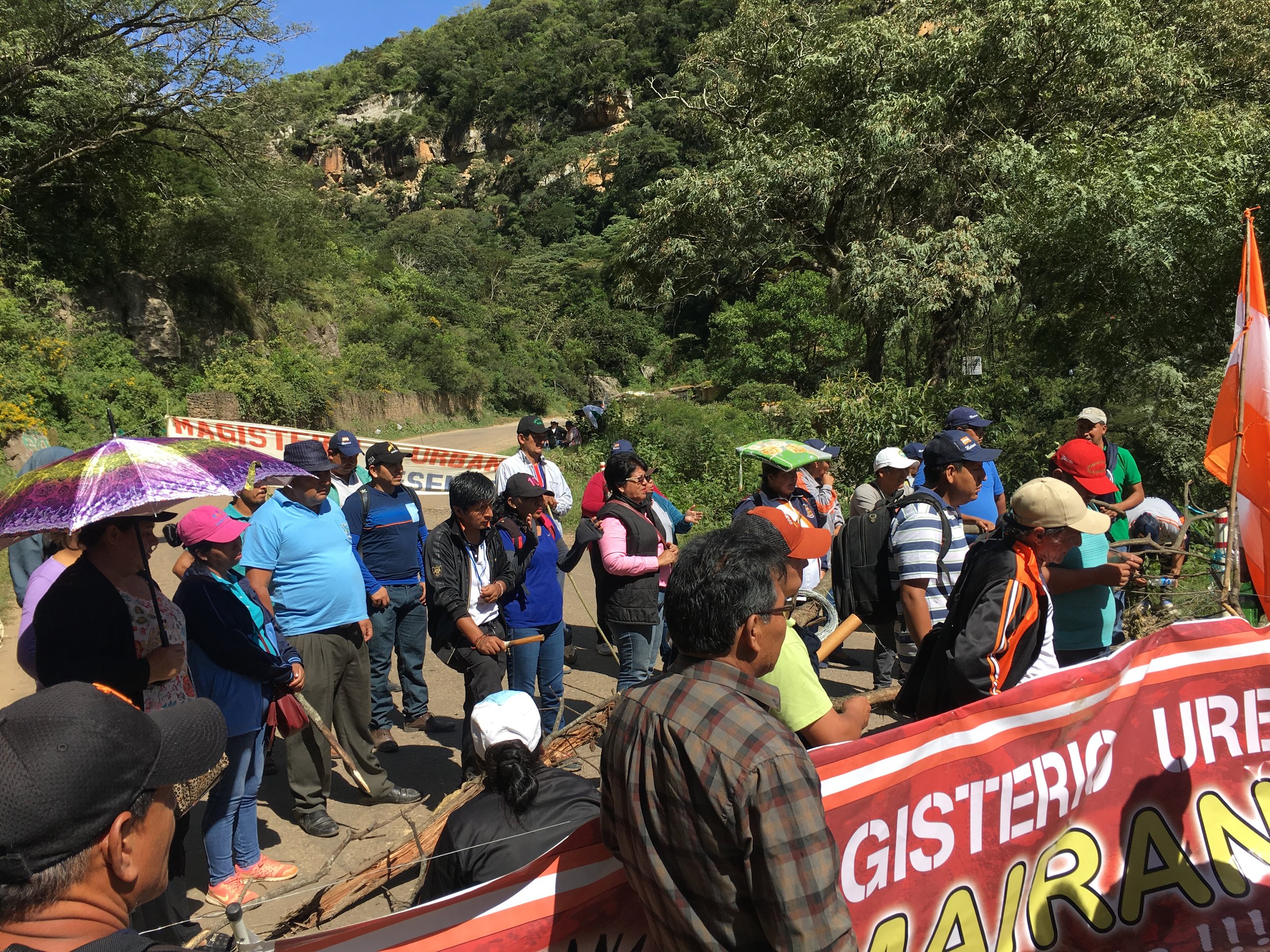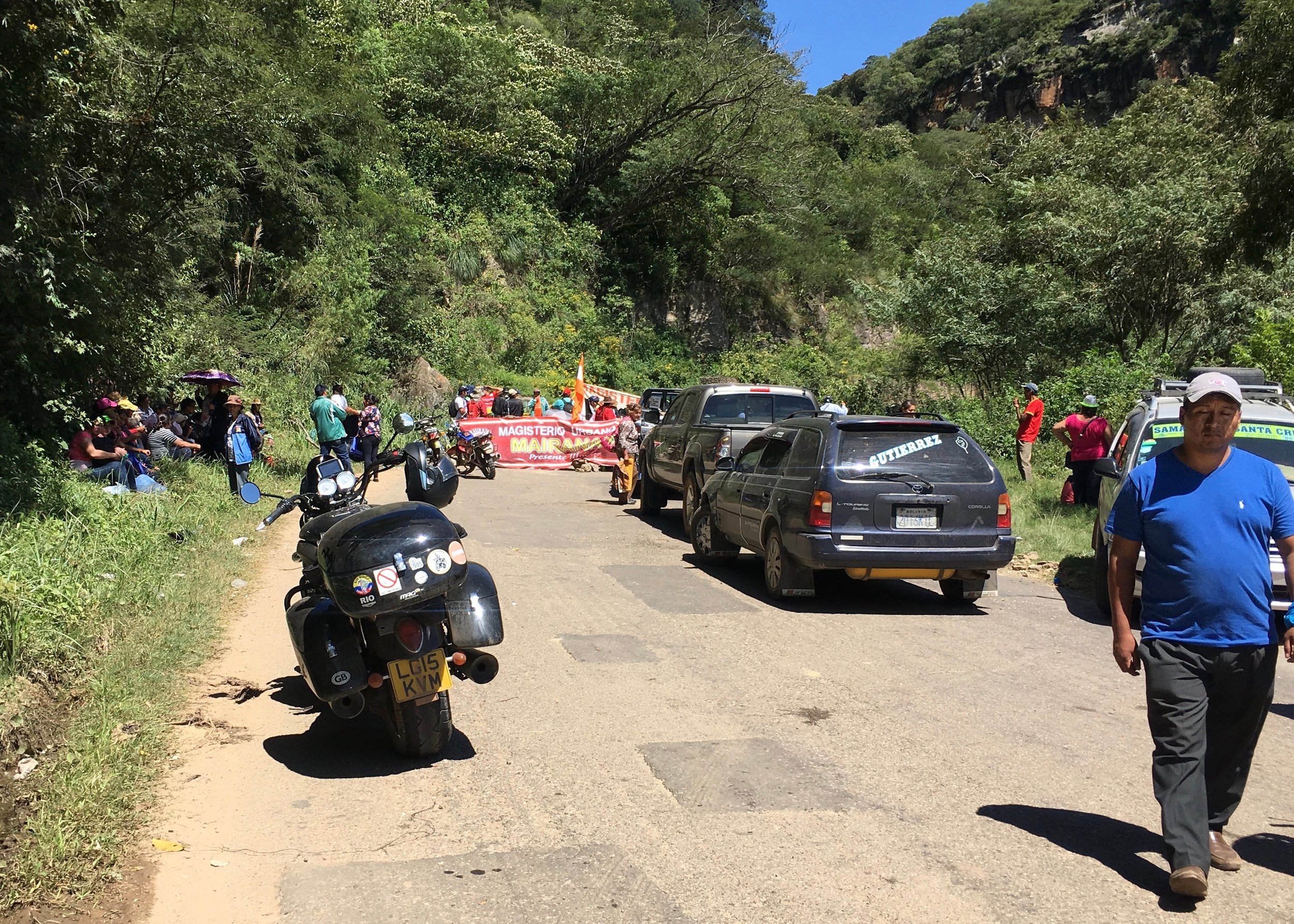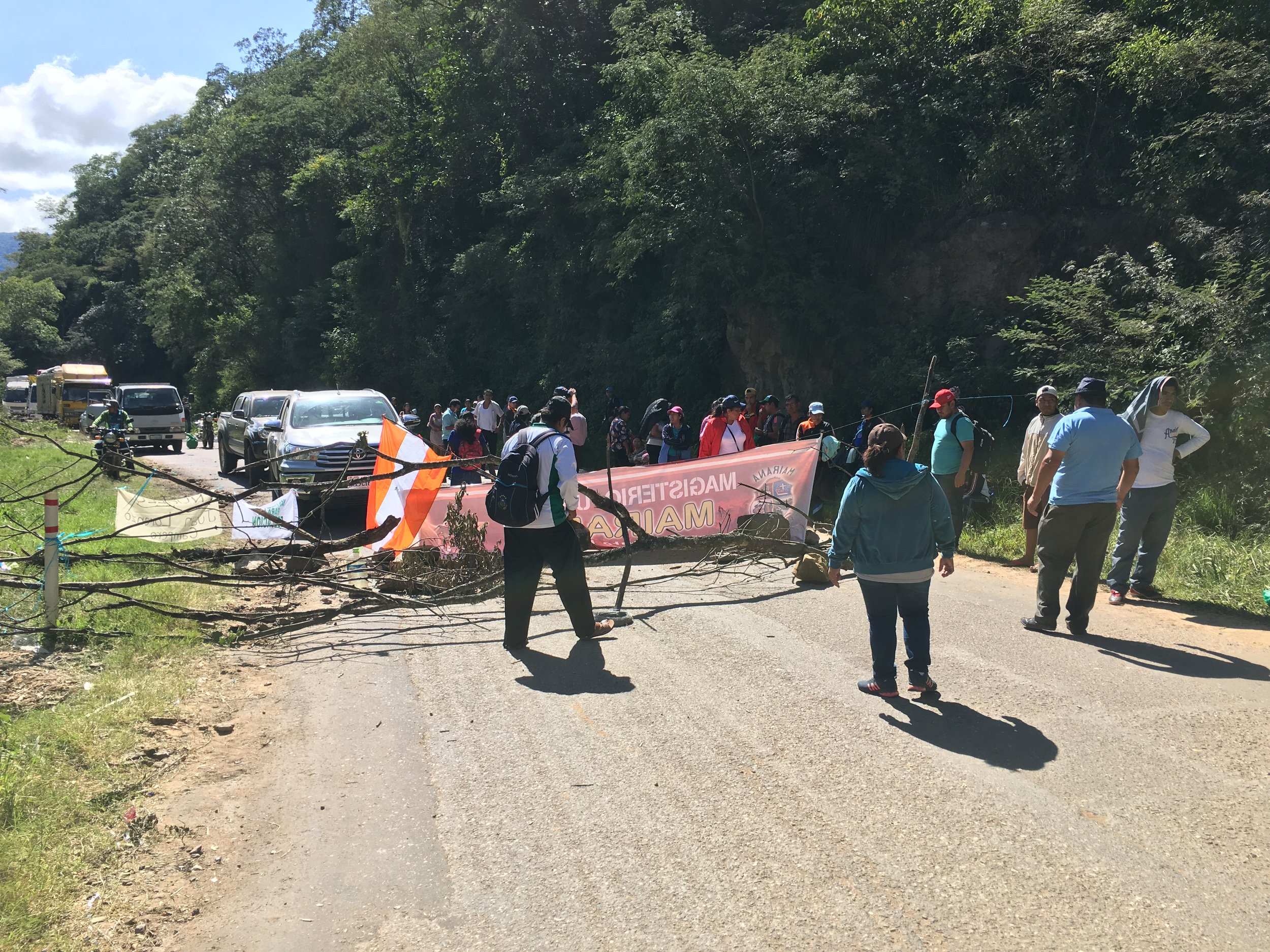As soon as I entered Bolivia, I wanted to leave it.
Border crossings are not one of my favourite places, with diesel trucks belching their way past scruffy buildings, and stressed motorcyclists wondering what the procedure is. Brazil into Bolivia was no different except that, after dodging cavernous potholes in no-man’s land, there was no one at the Bolivia frontier. An abandoned building appeared to be where I should present myself with documents, but it looked like a scene from a disaster movie. Eventually a man in fatigues appeared behind me, and ushered me to move on. So I entered Bolivia without a stamp in my passport and with no record for my bike. No one knew I was here. Despite numerous police check-points where I showed my UK documents, and never paid the bribe they blatantly solicited, I was allowed to continue. In due course, I left the country explaining what had not happened on entry. A customs manager whispered to me “We know we have problems in the east, there is no money”.
The lack of money in the east of the country is evident. The only activity I saw was subsistence farming. There were no hotels for me, so, just before dusk, I slipped in to a Hacienda. At least I think that is what it was. There was no sign, just a solitary chicken roasting on a barbecue spit at the entrance. For a room with air conditioning I paid £12. It had half a bathroom: toilet with seat, shower head either on or off, but the basin was outside guarded by wild dogs. The tasteless chicken meal cost £0.90. I later stayed in a room for £4. No A/C, and not much in the way of curtains either. I was always grateful for their big smiles though.
The road quality was adequate up to Santa Cruz, Bolivia’s largest city. I changed from Ruta No. 4 to Ruta No. 7. at that point as it ran more directly towards La Paz. Big mistake! The only hotel in sight that night was a huge 5 star eco jungle resort. I checked in to realise I was only resident in the entire place. A very strange feeling. A few hours down the road the following day I had to stop at a road block. Apparently quite common in Bolivia. Local residents wanted to draw attention to the fact they had a school but no funding for a teacher. After 4 hours we were all allowed through. Then things got worse. The broken road disappeared into roadworks. The unpaved surface gave way to gravel, sand, mud and eventually deep soft shingle. The Rocket could not go any further. I had to turn back.
The deep soft gravel on this hill defeated me. I had to turn back.
24 hours later the broken surface on Ruta No.4 disappeared again and I was left making slow and terrifying progress bouncing violently on what was left. I made it as far as another big city, Cochabamba, and realised that two of the four bolts holding my luggage set in place, had snapped. The panniers, melting slightly, were resting on the exhausts. A very conveniently located hotel allowed me in tho their drive and I managed to fit new bolts. They were very kind people. I stayed the night.
The prospect of good roads the following day, as I was due to reach the capital, La Paz, energised me. But oh no. Half way there, with 100 kilometres still to go, the road disappeared into a full scale road reconstruction project. Both sides at the same time. I made it, but exhausted. The Rocket is made for tarmac.
The process of buying fuel in Bolivia was a struggle for me to understand. Only about 1 in 3 fuel stations is allowed to sell fuel to vehicles with foreign license plates. Every customer has to have their plate recorded but I needed a little drop-down box on their computer system to enter my country. Occasionally they got round this limitation and sold me fuel, but more often refused me. There is no way of telling in advance whether they have the ‘system’ for foreigners until you have pulled in and stopped. When it all worked I was charged 2 1/2 times the price of locals. At first I thought I was being cheated, but eventually accepted this was their way of collecting a tax from foreign visitors for using their roads. Fair enough, but I hope the money actually reaches the government.
Eventually reaching La Paz at 3,650 metres above sea level was a welcome relief. It is not far from the Peru border and I was assured the road quality was good.
I regret I could not find anything of interest in Bolivia, and nothing positive to say about it. It is a poor country, with only tin, agriculture and textiles to support net earnings. The people were kind enough. No one stole from me; at least I don’t think they did. I did not visit the Uyuni slat flats which was my intention, as the roads were so bad. They might have been interesting, but there again, they’re just flat and salty.
